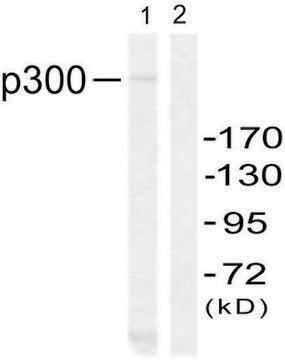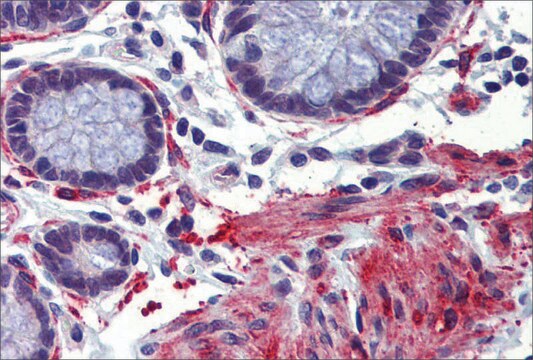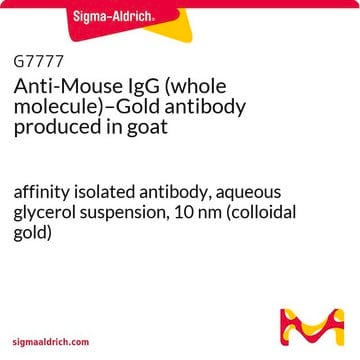P2859
Anti-p300/CBP antibody, Mouse monoclonal
clone NM11, purified from hybridoma cell culture
Sinónimos:
Anti-CREB Binding Protein
About This Item
Productos recomendados
biological source
mouse
Quality Level
conjugate
unconjugated
antibody form
purified immunoglobulin
antibody product type
primary antibodies
clone
NM11, monoclonal
form
buffered aqueous solution
mol wt
antigen 300 kDa
species reactivity
mouse, rat, human, mink, monkey
concentration
~2 mg/mL
technique(s)
immunocytochemistry: suitable
immunoprecipitation (IP): suitable
microarray: suitable
western blot: 10-20 μg/mL using human 293 embryonal kidney cells
isotype
IgG1
UniProt accession no.
shipped in
dry ice
storage temp.
−20°C
target post-translational modification
unmodified
Gene Information
human ... KAT2B(8850)
mouse ... Kat2b(18519)
rat ... Pcaf(301164)
General description
Specificity
Immunogen
Biochem/physiol Actions
KAT2B (lysine acetyltransferase 2B) possess histone acetyltransferase (HAT) activity and is thus known to regulate transcription process. Acetylation also influences the chromatin structure. Lysine acetylation significantly contributes to protein modification. It is essential for establishing protein function by altering its structure, activity and molecular interaction.
Physical form
Disclaimer
¿No encuentra el producto adecuado?
Pruebe nuestro Herramienta de selección de productos.
Storage Class
10 - Combustible liquids
wgk_germany
nwg
flash_point_f
Not applicable
flash_point_c
Not applicable
Certificados de análisis (COA)
Busque Certificados de análisis (COA) introduciendo el número de lote del producto. Los números de lote se encuentran en la etiqueta del producto después de las palabras «Lot» o «Batch»
¿Ya tiene este producto?
Encuentre la documentación para los productos que ha comprado recientemente en la Biblioteca de documentos.
Nuestro equipo de científicos tiene experiencia en todas las áreas de investigación: Ciencias de la vida, Ciencia de los materiales, Síntesis química, Cromatografía, Analítica y muchas otras.
Póngase en contacto con el Servicio técnico








